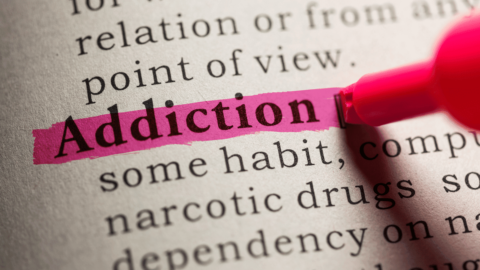The question “Is drug addiction a disease?” often sparks debate, but for those living with addiction, it’s not just a philosophical question—it’s a reality that affects their health, relationships, and access to care. While the medical community widely recognizes addiction as a chronic brain disease, stigma persists, even in healthcare settings.
This stigma can lead to feelings of shame, missed opportunities for treatment, and even substandard care from medical professionals. But understanding addiction as a disease and learning to navigate stigma is critical to finding the support and resources needed for recovery.
In this article, we’ll explore why addiction is considered a disease, how stigma impacts treatment, and ways to advocate for compassionate care.
Why Is Drug Addiction Considered a Disease?
Addiction isn’t a choice or a moral failing—it’s a chronic condition that affects the brain’s structure and function.
The National Institute on Drug Abuse (NIDA) characterizes addiction as compulsive drug use despite harmful consequences, driven by changes in the brain’s reward, memory, and decision-making centers.
The Science of Addiction
- Brain Changes: Repeated drug use alters the brain’s dopamine system, reinforcing cravings and diminishing self-control.
- Chronic Nature: Like diabetes or heart disease, addiction requires ongoing management rather than a one-time cure.
- Genetics and Environment: A person’s genetic predisposition and external factors, like trauma or stress, influence the risk for addiction
Recognizing addiction as a disease shifts the conversation from blame to treatment, yet stigma continues to undermine this understanding.
How Stigma Affects People with Addiction
Stigma is one of the greatest barriers to recovery. It can manifest in various forms:
1. Judgment from Healthcare Providers
Some patients report feeling dismissed or judged when seeking help for addiction. This can lead to inadequate care or reluctance to pursue treatment.
2. Internalized Shame
Stigma can make individuals feel like their addiction is a personal failure, discouraging them from seeking help or sticking to recovery plans.
3. Systemic Barriers
Policies influenced by stigma—such as criminalizing addiction or limiting access to medication-assisted treatment (MAT)—further marginalize those in need.
4. Delayed Treatment Seeking
Individuals facing addiction often avoid seeking help due to fear of being judged or labeled. Stigma can make people feel isolated and ashamed, preventing them from accessing life-saving resources.
Navigating Drug Addiction Stigma in Healthcare
If you’ve faced stigma from doctors or other healthcare providers, here are strategies to advocate for yourself and access compassionate care:
1. Seek Specialized Providers
Look for doctors or clinics that focus on addiction medicine. Providers with experience in addiction care are more likely to approach treatment without judgment.
2. Be Honest About Your Needs
While it can be intimidating, transparency about your addiction and recovery goals allows providers to offer better support.
3. Know Your Rights
Patients have the right to receive respectful and nonjudgmental care. If you encounter stigma, consider seeking a second opinion or filing a complaint.
4. Use Telemedicine Services for Addiction Treatment
Platforms like QuickMD allow you to access treatment discreetly and without fear of judgment, offering an alternative to in-person visits.
The Role of Suboxone and MAT in Treating Addiction as a Disease
Medication-assisted treatment (MAT) is a proven approach to treating opioid addiction, combining medications like Suboxone with counseling and behavioral therapies. Recognizing addiction as a disease, MAT addresses both the physical and psychological components of dependency.
Benefits of MAT for Drug Addiction Treatment
- Reduces cravings and withdrawal symptoms, making recovery more manageable.
- Improves patient outcomes, lowering the risk of relapse and overdose.
- Helps normalize brain function, supporting long-term recovery.
Learn more about MAT options and how QuickMD can help.
How to Break Down the Stigma of Drug Addiction
Changing perceptions about addiction starts with education and advocacy:
- Educate Yourself and Others: Understanding that addiction is a complex brain disease, not a moral failing, is crucial. Sharing accurate information can dispel myths and change perceptions.
- Provide Support and Encouragement: Offer nonjudgmental support to those affected by addiction, reinforcing that seeking help is a sign of strength and a step toward recovery.
- Share Stories: Personal testimonials about recovery can humanize addiction and challenge stereotypes.
- Advocate for Policy Change: Support initiatives that expand access to addiction treatment and reduce punitive measures for substance use.
FAQs About Drug Addiction as a Disease
Why is addiction considered a disease?
Addiction alters the brain’s structure and function, creating compulsive behaviors that meet the criteria for a chronic medical condition.
Can addiction be cured?
Like other chronic diseases, addiction can’t be “cured,” but you can effectively manage it with ongoing treatment and support.
Why do some doctors still stigmatize addiction?
Stigma often stems from outdated beliefs about addiction being a moral failing rather than a medical condition. Increased education in addiction medicine is helping to change this perception.
What should I do if I experience stigma from a doctor?
Advocate for yourself by seeking specialized providers or using telemedicine services like QuickMD to access nonjudgmental care.
How does Suboxone help with addiction recovery?
Suboxone reduces cravings and withdrawal symptoms, stabilizing patients and lowering the risk of relapse.
How QuickMD Can Help You Overcome Addiction
At QuickMD, we believe everyone deserves compassionate, stigma-free care. Our licensed providers specialize in addiction treatment, offering:
- Same-Day Appointments: Speak with a provider online, anytime.
- Medication-Assisted Treatment: Access Suboxone and other medications to support your recovery.
- Discreet, Nonjudgmental Care: Get the help you need from the comfort of your home.
Drug Addiction as a Disease: Final Thoughts
Yes, drug addiction is a disease—a chronic, complex condition that requires understanding, compassion, and evidence-based treatment.
Stigma shouldn’t stand in the way of getting the care you deserve. By educating yourself, advocating for your needs, and seeking support from trusted providers like QuickMD, you can take control of your recovery and reclaim your life.
Ready to take the first step? Schedule a consultation with QuickMD today and start your journey toward a healthier future.




